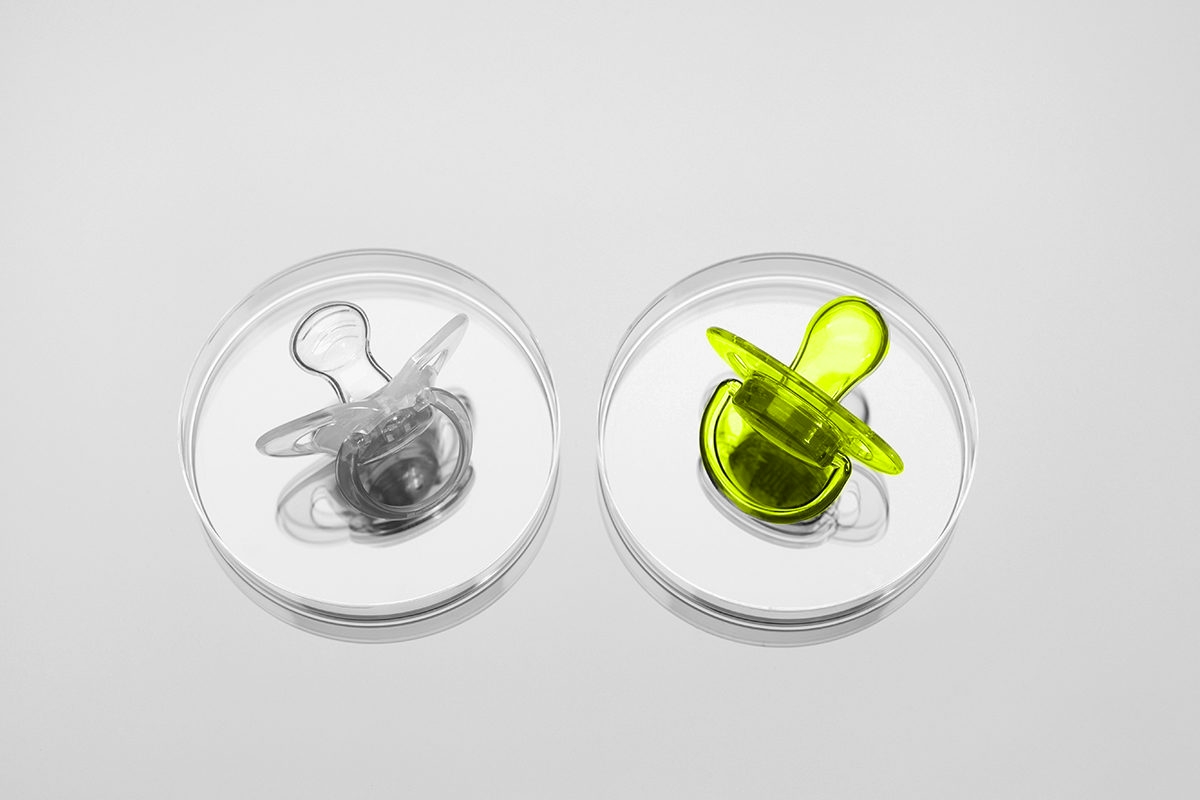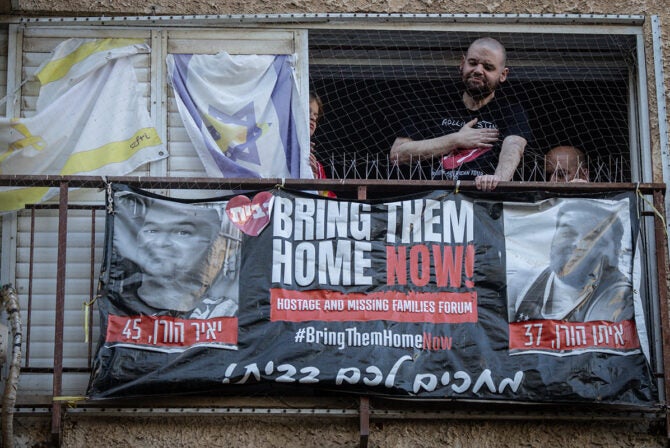My husband and I struggled for nearly five years with secondary infertility. Throughout our fertility treatments, one of the things that continuously inspired me were the articles I read about other women’s infertility journeys. Through these stories I found hope, a sense of connectedness, and affirmation.
Now that our journey has come to an end, with the arrival of our long-awaited baby boy, I feel that it’s time for me to share our story. It’s not an easy one for me to share, but I do so in an attempt to offer a glimpse of the hope that I found in other women’s stories, as well as to raise awareness around infertility and the use of donor eggs.
The Journey
Our journey was one that consisted of six failed IVF cycles. That was followed by five donor egg embryo transfers, including one that resulted in an ectopic pregnancy and one pregnancy that we terminated for medical reasons towards the end of the first trimester.
This all caught us by surprise. When I was 34, we got pregnant with our first son after a few months of trying, so I didn’t expect any issues when we started trying for our second baby two years later. But after several unsuccessful months, we decided to seek help. At our first consultation, the doctor did an ultrasound, and told me that my ovaries looked small; he warned me that I could go into menopause in my early 40s. My initial reaction was that he was being overly conservative, and I didn’t take him too seriously.
We went for a second opinion and, after they did my blood work, the doctor called me to let me know that the test results indicated that I had diminished ovarian reserve. She recommended going straight to IVF without trying other less invasive forms of fertility treatment.
That’s when it hit us that we could be facing some serious challenges. I was feeling overwhelmed and anxious, but I was optimistic. I had a few friends who had gone through IVF in their 20s and had gotten pregnant with their first round, so I was hopeful that it would work for us, too.
Unfortunately, because of my age and my diminished ovarian reserve, IVF proved unsuccessful for us. We went through a total of six rounds but none resulted in a successful pregnancy.
After about two years, we made the difficult decision to seek the help of an egg donor. I felt as though my body was failing me. In the world of infertility, I was relatively young (I was 38 at this point) so I didn’t understand why it was so difficult for me to get pregnant. My family had a history of pregnancies at an advanced maternal age: my mother got pregnant at 37; my grandmother at 38; and my great grandmother at 41! This made my reality especially hard to face.
At some point, though, I realized there was nothing I could do other than accept the situation. It took me some time to warm up to the idea of using an egg donor. I started going to a support group with other women who were pursuing donor eggs, and I found this to be extremely helpful.
Typically, egg donation has a high success rate, so our sense of hope was renewed. Unfortunately, things did not go smoothly. The first two embryo transfers did not result in a pregnancy. We then switched to a different protocol for our third transfer, and I got a positive pregnancy test. But we soon learned the pregnancy was ectopic, and everything came crashing down amidst bleeding and intense pain.
At that point we had used all the embryos that were created from the egg donor cycle. Fortunately, the same egg donor was interested in donating again. So about 4 months later, after we were medically cleared and worked up the strength to try again, we did another transfer.
A month later, we confirmed a positive pregnancy, and an ultrasound confirmed it was an intrauterine pregnancy. This time, we had also done genetic testing on the embryos, so we were feeling confident that this pregnancy would be smooth. What could possibly go wrong?
At our six-week ultrasound, everything seemed OK, and we said goodbye to our reproductive endocrinologist. He looked at us and said, “Well, you’ve had a road.” And we did have a road — but there were still more twists and turns to come.
At 13 weeks, during our first anatomy scan, we discovered the baby was not developing appropriately. It felt like we had been struck by lightning. Even after all that we had been through, we didn’t suspect that something else could go wrong. But it could and it did. The complication that arose was congenital and could not be explained; it was something that “just happens” sometimes.
We made the difficult decision to terminate the pregnancy. Somehow, though, we were not ready to give up. We explored the possibility of surrogacy, but were encouraged by our doctors to try again. We were assured that what happened in the pregnancy was an anomaly and unlikely to happen again.
After enduring a few more trials, including a hysteroscopy, two endometrial biopsies, and weeks of antibiotics to clear an infection that resulted from the D&C — as well as taking some time to heal emotionally as best we could — we were ready to do another transfer.
I’m not sure exactly what motivated us to keep going. I had always envisioned having more than one child, and we wanted a sibling for our son. In addition, as part of a modern Orthodox community, I felt a little out of place with one child. Nobody asks how your child is doing; they ask about your children, innocently assuming that you have more than one.
So it’s difficult to pinpoint exactly why we kept trying, but somehow I knew in my gut that we weren’t ready to give up. One thing that resonated with me was the idea that having another child is bringing God’s image into the world, since we are all created in God’s image. This also made me feel that our attempts to have another child had a higher purpose.
We did another transfer, and confirmed another positive pregnancy. But this time we were apprehensive. Our eyes had been opened to all kinds of possibilities of what could go wrong.
The Pregnancy
The pregnancy brought about a wide range of emotions: joy, anxiety, gratitude, hope, fear. At times, I felt at ease; other times I crashed, as I was absorbing all the years of pain we had endured to get to this place.
Even though we spent so much time and energy in an effort to get pregnant, now that it seemed that it was really happening, I worried. How were we going to adjust to being a family of four? Did we make the right decision to pursue a second child? And yet, despite these intense emotions, I felt so blessed to be pregnant.
The Birth and Beyond
Given what we had endured, we had a lot of time to adjust to the idea of using a donor egg. And yet, I wondered if I would feel differently once the baby arrived, and was no longer growing inside of me. How would I feel about the genetic differences? How would others’ reactions have an impact on me?
Now that our baby has arrived, all I see is a miracle: a baby that ultimately came from God and was created in God’s image. When I look at him, I see my husband, a little brother, our highly anticipated second child, and our son. I’m grateful for the egg donor, who was described to us as having a kind soul, and we hope she passed this special trait along to our son.
I feel a sense of immense gratitude for being able to fulfill our dream of having another child. But if I’m being completely honest, I also occasionally long for the family I had planned for — three children, close in age, including a girl with curly hair like mine. I guess that, in some ways, our experiences with infertility will always be a part of us.
I’m also aware of the possible challenges in the future, when our child questions his past and the egg donor who helped create him. But for now, I look forward to getting to know our son, who is now 3 months old. Having already weathered a great many storms, I feel that we are prepared to handle whatever challenges come our way in the future with strength, thoughtfulness, and resilience.
Image by Andrew Brookes via Getty Images








